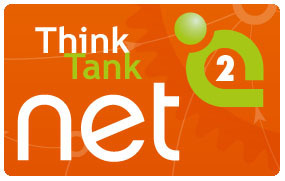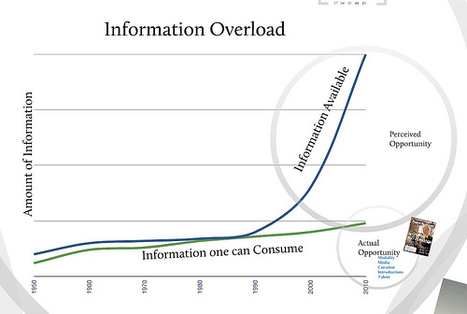Brittany Morin wrote this piece for the Huffington Post
I thought this was good article, great observations and a real grasp on curation and how to do it effectively. I'm going to refrain from reposting all the gems in this post and instead give a commentary on something she said which I thought was a bit shortsighted.
Here's what caught my attention:
"I believe that the people best poised to be curators of the Internet are those from the Facebook Generation -- the first generation of native web citizens, mainly people in their 20s or early 30s who have grown up with the web and can navigate, scour, synthesize and then publish the best of what's out there on a daily basis because they practically live online. It is our generation that will also be able to more easily understand where new opportunities lie because they can quickly pinpoint where the gaps are in content, services, and products."
My response:
She is right that people in their 20's or 30's are indeed well equipped to curate the web especially for their own age group as well as others for all the reasons she states.
Having said that, there are people of all ages who have been on the web for years, myself included, who have built relationships and have the ability to spot trends, gaps and potential opportunities. I seriously doubt that people in that age group know what people in their 40's, 50's & 60's might need in a trusted source or have access or the ability to ferret out every potential opportunity on the web. I would be careful about making global statements like that.
**What if people of all ages contributed to a topic together, can you imagine the collective intelligence that could come from that?
What will set a good curator apart from a person who just aggregates links is the context they can add. Their perspective will have been gained through the humility and wisdom of life experience and can add great richness to the original content. To be sure, I have met many wonderful GenYers who have these traits in abundance, but this is one area where a few extra years and a few extra miles can help.
Content is the new currency of the web, it is meant to be a door opener, to invite others into the conversation, building thought leadership and authority. The more people that contribute by giving comments or adding another level of context, not only does it add to our knowledge but it can build community.
I think there is an enormous opportunity for anyone who has the passion, knowledge expertise and committment to select the very best content, fact check for accuracy and is willing to put in the time to learn how to curate succesfully.
Commentary by Jan Gordon covering "Content Curation, Social Media & Beyond"
Read full article here: [http://huff.to/v7bGHt]
Via
janlgordon






 Your new post is loading...
Your new post is loading...

















The thing that amazes me most when it comes to what is supposedly "news and content curation" on platforms like Scoop.it, is that some of the most popular and trafficked channels have nothing to do with curating a topic for a specific audience.
Why? Because if you look at the supposed "curation" done on these channels, it is nothing but simple and often very superficial picking and unrestrained sharing of links with absolutely no concern for checking, verifying or let alone reading what is being posted.
This is how I long lost trust for many such curators. Because they are literally doing the opposite of what a true content curator should do: vet, verify, analyze, explore, check, add, inform, contextualize and reference.
In this light, I am not actually despising their work, because without them even realizing it, they are slowly creating the best opportunity and conditions for whoever does quality curation to shine a million times brighter.
As noise-generators they provide tremendous opportunity to those who know for real how to filter noise out.
Catherine Lombardozzi writes: "Filtering is an early step in the curation process, but a critical one.
Our learners count on us to cut through the noise and find the most useful materials to support their learning.
If they find that we have collated material that is inaccurate, out-dated, or relatively useless, they’ll go back to using their own search methodologies for finding materials, and our attempts to support them will be for naught."
And I must holeheartedly agree with her about the importance for curators, to be true, effective filters.
In this article, she offers some valuable guidelines and suggestions to help anyone interested in curation and in learning how to become an effective filter.
Rightful. 7/10
Full article: http://learningjournal.wordpress.com/2013/03/11/the-curators-filters/
(Image credit: Polarizing filter - Shutterstock)